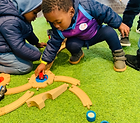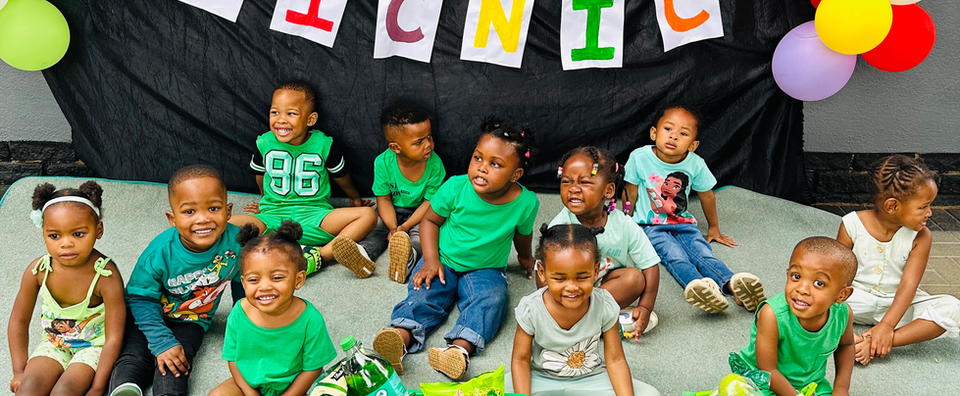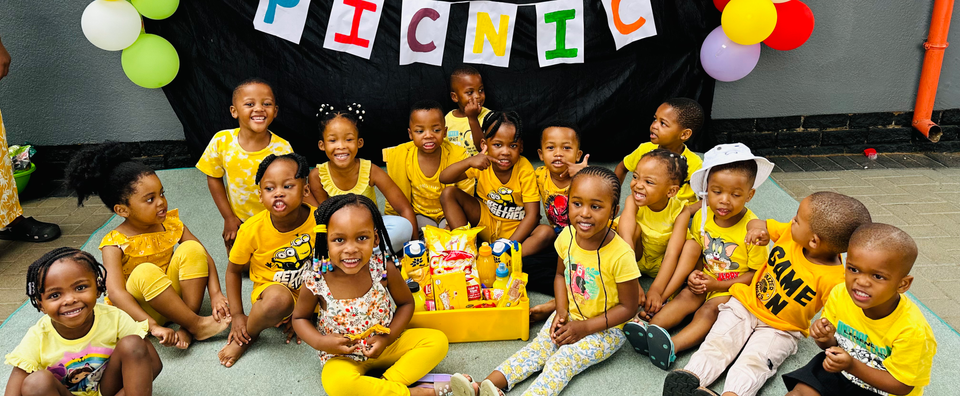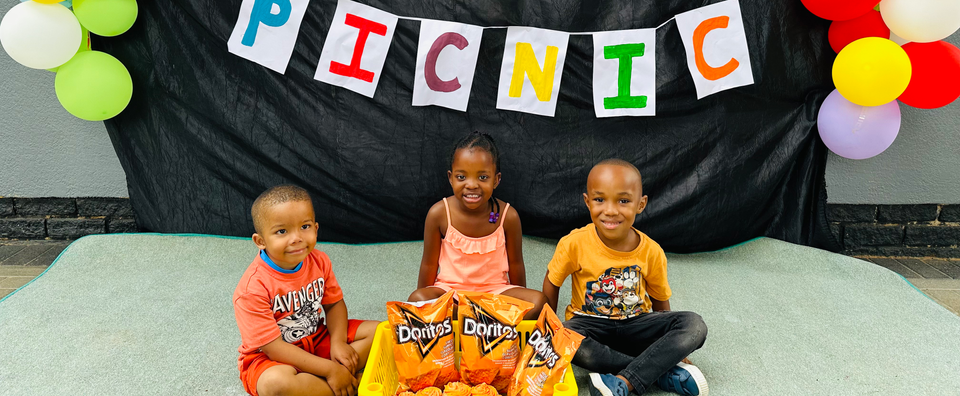
About
Vision:
Little Angels Preschool Academy aims to grow the future of our community, where children are loved, respected and grow to their fullest potential.
Our programs aims at growing our children with the wholistic approach through play and encouraging positive living in all children’s lives. With the wholistic approach we will give children the opportunity to develop their social, emotional, cognitive and physical abilities, as each child is special and unique a positive early childhood experience is vital for the overall development in later life. Our program provides a safe and healthy environment for children to grow, learn and explore to the best of their abilities in a positive environment and role modelling.

Mission:
Little Angels Preschool Academy’s mission is to provide a high quality education in a safe, respectful and healthy environment that builds the foundation to a life-long learning for our children.
Values:
The classroom provides a home-like learning environments and the outdoors extends the curriculum. The classroom is set up to inspire, nurture and encourage discovery. We believe children are lovers of learning and we create an environment to encourage and support this desire. Classrooms are divided into learning centres that intrinsically foster social skills, cognitive development, and academic skills, while engaging their desire to learn, as they explore and discover together. Learning activities, materials, and other items are introduced into the classroom environment that focuses around the interests of the children. The daily schedule provides a structure that helps the children feel secure and competent.
At Little Angels Preschool Academy, we believe…
Codes of Ethics
-
That children are born with a natural ability to learn from their surroundings and experiences.
-
That all children have the right to a safe, loving and nurturing environment in which to grow and explore the world.
-
In the collaboration between children, teachers, parents and community, the educator’s job is to support and deepen the innate affinity towards learning.
-
That open and honest communication and dialogue among educators and families is a cornerstone to positive experiences for children.
-
That all individuals are unique in their perspective and have the right to share their ideas in a respectful environment in a high level of accountability of all to support the school environment.
-
That the school creates an organic, dynamic and changing culture in which to navigate and grow.
-
That a school is connected to a larger community and the school has a responsibility to enter into intentional and purposeful exchange with the community.


Obligation to One’s Self and Colleagues
Early childhood educators often rely on a team approach. Good relations with co-workers are essential to achieve quality service. It is important to establish and maintain settings and relationships that support productive work and meet professional needs.
-
Early childhood educators make continued efforts to improve professionally by actively pursuing knowledge regarding developments in the early childhood education field.
-
Early childhood educators respect other colleagues as professionals.
-
Early childhood educators share knowledge with colleagues.
-
Early childhood educators maintain confidentiality about colleague’s views.
-
Early childhood educators work in a climate of trust and confidence which empowers them to speak and act in the best interests of children.
Obligation to Children
This code of ethics contains the principles by which members of the Early Childhood Development Association of Prince Edward Island adhere too while working with children.
-
An early childhood educator’s first obligation is to the children in his/her care.
-
The early childhood educator respects and accepts each child as they are; regardless of their race, creed, emotional or physical appearance.
-
Early childhood educators consider the child’s interests, needs and abilities and utilize them to fulfil the child’s potential.
-
Early childhood educators create an environment which helps children develop self-confidence and trust in themselves and others.
-
Early childhood educators facilitate the development of the whole child.
-
The early childhood educator has a moral and legal responsibility to report suspected cases of child abuse.
Obligation to Families
Families are of primary importance in children’s development. The term family may include others, besides parents, who are responsibly involved with the child.
Early Childhood Educators acknowledge a responsibility to collaborate with both the home and school.
-
Early childhood educators recognise the role of parents as primary caregivers and the educator’s role as one which is supportive to the family and the child.
-
Early childhood educators respect the parent’s knowledge of their child.
-
Early childhood educators maintain confidentiality regarding knowledge obtained in the daily dealing with children.
-
Early childhood educators maintain open communication with the child’s family.
-
Early childhood educators respect different family values and beliefs.





